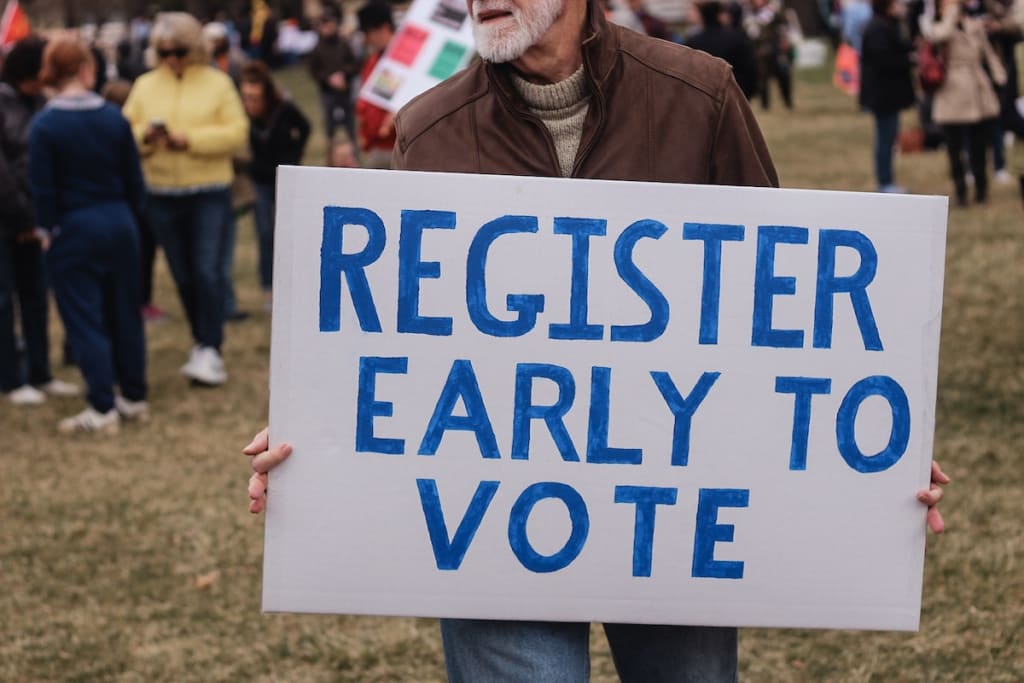The 26th Amendment
What It Means to Me

I got to vote at 18, I remember that I took this very seriously. I couldn’t drive yet because of my family, but I decided to vote. I felt powerful, and I think I voted for Clinton that year again, despite all of his crazy scandals. The 26th Amendment is all about the right of 18 year olds to vote in any election. The United States is bound to not be able to deny the right to vote. The 26th Amendment is the last of its kind in a series of amendments enacted in more than one century. This amendment is designed as protection for voting rights.
It was designed to recant a Supreme Court ruling that Americans had to be at least 21 to vote. After the Civil War, Section 2 of the Fourteenth Amendment was enacted so that male inhabitants of each state should be 21 years of age. The 14th Amendment also demands that voters be US Citizens, until the 26th Amendment changed this on March 23, 1971. The 26th Amendment was ratified on July 1, 1971. This amendment affected the Student Movement at the time, because they declared themselves old enough to vote about a war they were against, namely the Vietnam War.
Congress had lowered the voting age to 18 in a 1970 bill, which extended the Voting Rights Act, but the Supreme Court felt that in the case of Oregon v. Mitchell, that Congress could not lower the voting age for State and local elections. The Supreme Court had ruled that the 26th Amendment required a ruling. This ruling was ratified into the 26th Amendment, which meant our Constitution allowed voting rights for individuals between 18-21 years old. Nobody 18 years or older should be denied the right to vote on account of age. Prior to the Amendment, the Voting Rights Act of 1965 was there to lower the voting age nationally. The voting age was decided to be 18 in all the federal, state, and local elections.
Only four states had a minimum voting age of 21, in 1970, and these states were Georgia, Kentucky, Alaska, and Hawaii. Throughout the sixties the battle for voting rights at the age of 18 was fought. At one point in this domestic war, President Nixon disagreed with Senator Ted Kennedy in 1970. Kennedy wanted to lower the voting age nationally, but there was some disagreement as to how to go about making this wide-sweeping change. The Senate had voted 94-0 on March 10, 1971. The 26th Amendment was sent to the state legislatures for their consideration. The 26th Amendment had been ratified by 38 states. These states were, Connecticut, Delaware, Minnesota, Tennessee, Washington, Hawaii, Massachusetts, Montana, Arkansas, Idaho, Iowa, Nebraska, New Jersey, Kansas, Michigan, Alaska, Maryland, Indiana, Maine, Vermont, Louisiana, California, Colorado, Pennsylvania, Texas, South Carolina, West Virginia, New Hampshire, Arizona, Rhode Island, New York, Oregon, Missouri, Wisconsin, Illinois, Alabama, Ohio, and North Carolina. This made three-fourths of all states, so that it became law. Then the following states managed to ratify this bill, and they were, Oklahoma, Virginia, Wyoming, Georgia, and South Dakota. This amendment was as historic as giving women the right to vote as per the Nineteenth Amendment.
The age was made 18, Millennials if you are reading, because 18 has signified the adopting of adult responsibility. Some parents do manage to kick their 18 year olds off to college, and say, hey you pay the rent now. It is a time when you get a job, in order to eventually move out. Some families are not always like this, in particular in the Bay Area where we bother to live with our parents because of the rent being as high as it is.
Works Cited
About the Creator
Iria Vasquez-Paez
I have a B.A. in creative writing from San Francisco State. Can people please donate? I'm very low-income. I need to start an escape the Ferengi plan.






Comments
There are no comments for this story
Be the first to respond and start the conversation.